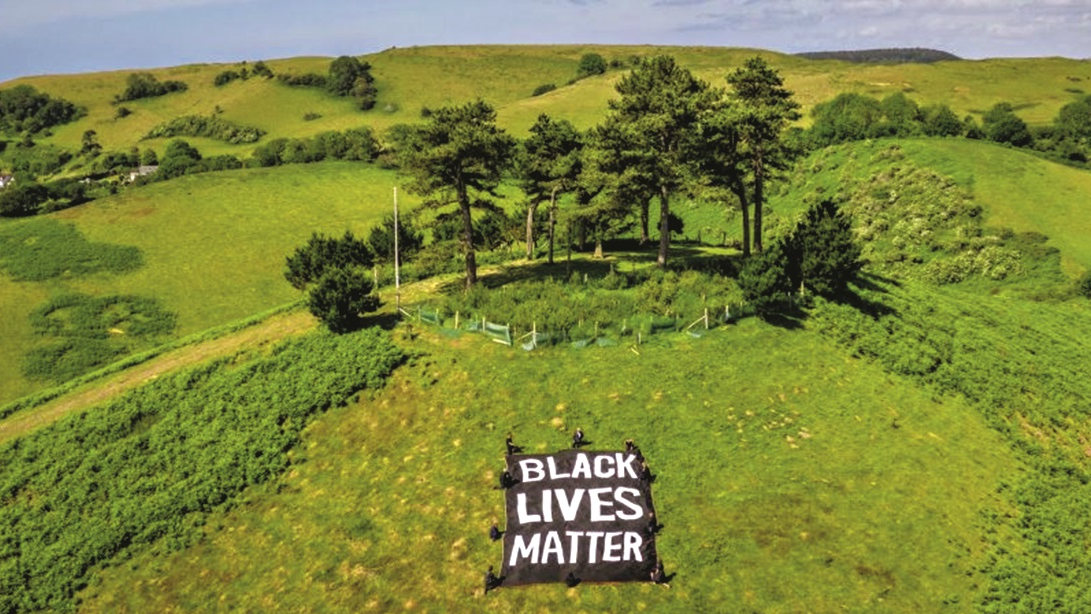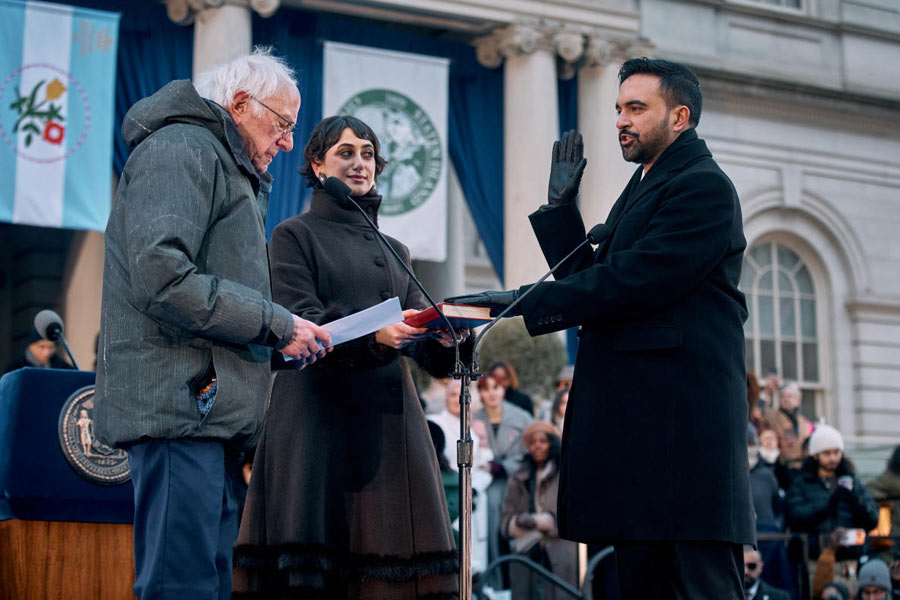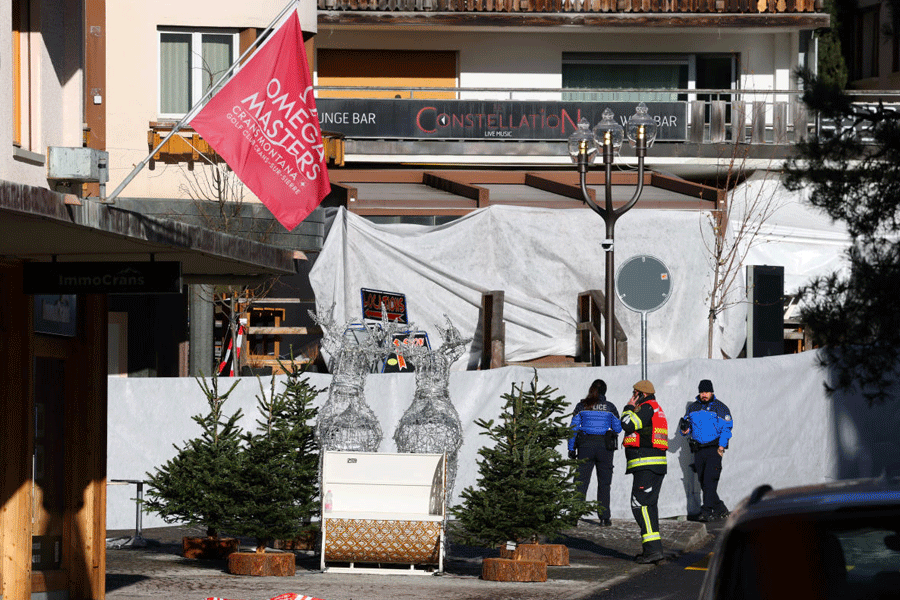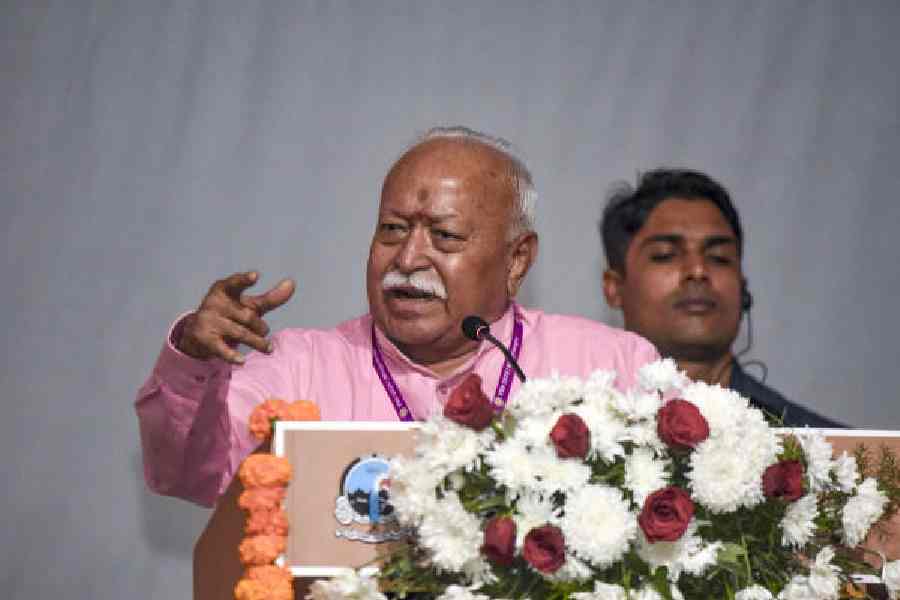My favourite hymn is “Jerusalem” because of its evocation of “Englands green & pleasant Land”. It is based on William Blake’s poem set to music by Hubert Parry and orchestration by Edward Elgar. But now a scholarly new book, Green Unpleasant Land: Creative Responses to Rural England’s Colonial Connections by Corinne Fowler, professor of postcolonial literature at Leicester University, argues that behind the beauty of rural Britain lies deep-seated racism.
“I could have called it Green Unpleasant Land with a question mark,” she tells me. “But I wanted to signal... disrupting our more traditional views of the countryside. ‘Green & pleasant Land’ is something which gives us a feeling of nostalgia, of love for the countryside... I wanted to slightly trouble that feeling. Hence, the provocative title. I’m looking afresh at the English countryside. I’m trying to open up its histories of connection to the British Empire, to the East India Company and to transatlantic slavery in particular.”
She points out: “Despite Blake’s call to ‘love the human form/ in heathen, Turks or Jew’, “Jerusalem” has been enlisted to support racially exclusive visions of rural England as a space of whiteness. Historically, the countryside is a terrain of inequalities, so it should not surprise us that it should be seen as a place of particular hostility to those who are seen not to belong, principally Black and Asian Britons.”
Fowler is among the academics who brought out a National Trust report revealing that 93 of its properties were financed by the slave trade or colonial loot, mostly from India. “It’s really important to correct that fallacy about the colonisation of India in any way benefiting the Indian economy... it quite clearly fleeced that economy in a way that was devastating,” she says. Fowler has been denounced by right-wing tabloids and commentators for allegedly denigrating Britain: “I get horrible threatening emails. I think I’ve just got dragged into this culture war.”
Beauty business
Listening to Reita Faria last week on the BBC’s Witness History spot made me wonder whether I shouldn’t return to university to do a PhD on the Indian beauty business. It is worth recalling that Aishwarya Rai won the Miss World title in 1994, followed by Diana Hayden (1997), Yukta Mookhey (1999), Priyanka Chopra (2000) and Manushi Chhillar (2017). Sushmita Sen won Miss Universe in 1994. But the first Indian to win Miss World was Faria, a Goan girl from Bombay, in 1966. Now 77, Faria, a retired doctor, and her husband and endocrinologist, David Powell, live in Ireland. They have two daughters and five grandchildren.
She travelled the world for a year as Miss World, including going to Vietnam with Bob Hope to entertain the American troops. She was afraid that the Indian government, which “didn’t support the American war in Vietnam”, might impound her passport. Faria says about her unexpected 66-1 victory in London: “I was proud for India — I wore the Indian sari for the entire year because I wanted the image of India to be established at that point.” However, she was resolved not to go into Bollywood but become a doctor, which she did by qualifying from King’s College Hospital in London.
Does she think there is a place for beauty contests in today’s world? Her reply: “I don’t to be quite honest — it really has passed its sell by date in the sense that the world has matured and there really is no fairy tale to anything anymore.”
Scottish at heart
It is worth recording that Sirdar Iqbal Singh, who passed away, aged 91, on March 6, was someone whom the Scottish people took to their hearts. He was born in Lahore in 1930, came to London in 1959, worked in a factory before making his money in property, and moved to Scotland in the 1980s. He bought the deserted 100-acre island of Vacsay in the Outer Hebrides, which he named after Robert Burns, Scotland’s national poet. He had poems by Burns, including “Auld Lang Syne”, translated into Punjabi, and wore blazers in the invented Singh tartan.
He was nicknamed “Laird of Lesmahagow” by the Scottish media — laird refers to a person who owns a large estate. I stayed one night in “Little Castle”, his 20-bedroom turreted mansion in Lanarkshire. Iqbal’s turban was always white, a reflection of his deep faith. From his younger brother in London, Inder Singh Uppal, I learn: “He used to spread a white sheet downstairs. When we asked why, he said, ‘Don’t you know? Guruji comes at night.’”
Balanced image
Bite-Sized Books is an innovative publishing house which churns out short books on contemporary issues. I contributed something to a book on Brexit once. Now my good friend, Mihir Bose, has done a characteristically balanced biography, Narendra Modi: The Yogi of Populism. It suggests that Modi’s populist policies may have inspired Donald Trump and Boris Johnson to emulate him. Bose quotes Ajit Gulabchand as saying Modi is “a very sincere man” who is “not corrupt”. But a journalist from a leading paper, who tells the author, “There is hardly any journalism happening now” and that “Modi’s government has cowed the media”, asks not to be named: “No, no please do not.”
Footnote
A new set of stamps from Royal Mail commemorating the legend of King Arthur takes me back to learning Tennyson’s “Morte d’Arthur” at St Xavier’s in Patna. It depicts the young Arthur being handed the Excalibur by the Lady of the Lake. Later, the dying Arthur has the sword returned to the lake by a reluctant Sir Belvedere: “But ere he dipt the surface, rose an arm/ Clothed in white samite, mystic, wonderful,/ And caught him by the hilt, and brandish’d him/ Three times, and drew him under in the mere.”











